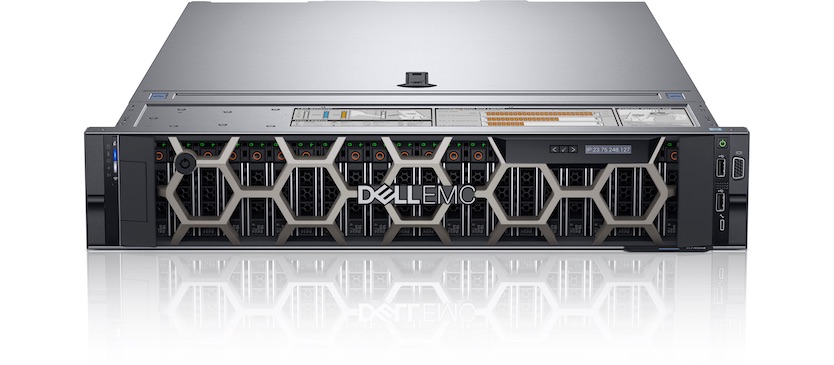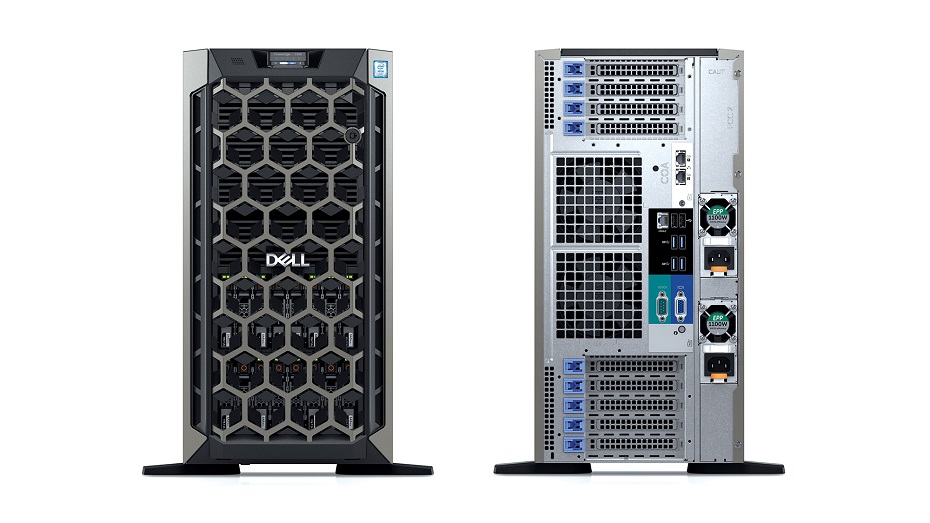The Best DELL Server For Domain Controller
Setting up a robust and reliable domain controller is crucial for managing network resources efficiently. Dell, a renowned name in the server industry, offers a range of powerful servers that cater to diverse business needs. In this article, we will explore three of the best Dell servers tailored for serving as domain controllers, each with unique features and specifications to consider.
3 Best DELL Servers for Domain Controller
These three Dell servers cover a range of form factors and performance levels. Choose the one that best aligns with your specific home lab requirements, keeping in mind factors such as scalability, storage needs, and available space.
Dell PowerEdge R740

The Dell PowerEdge R740 is a versatile 2U rack server designed for various workloads, including virtualization and enterprise applications. It offers a balance of performance, scalability, and reliability.
Specifications:
-
Processor: Intel Xeon Scalable processors
-
Memory: Up to 3TB DDR4
-
Storage: Supports various drive configurations including SAS, SATA, and NVMe SSDs
-
RAID Controllers: PERC H730, H730P, H740, H330, Software RAID S140
-
Networking: Dual or Quad port Gigabit Ethernet or 10GbE options
Dell PowerEdge T640

The Dell PowerEdge T640 is a tower server suitable for small to medium-sized businesses requiring performance and scalability. It offers high storage capacity and is well-suited for growing business needs.
Specifications:
-
Processor: Intel Xeon Scalable processors
-
Memory: Up to 3TB DDR4
-
Storage: Supports up to 32 x 2.5" or 18 x 3.5" drives
-
RAID Controllers: PERC H730P, H740P, HBA330, Software RAID S140
-
Networking: Dual-Port 1GbE, Quad-Port 1GbE, Dual-Port 10GbE
Dell PowerEdge R340

The Dell PowerEdge R340 is a compact 1U rack server designed for small businesses or remote offices. It provides essential performance and reliability for various workloads, including serving as a domain controller.
Specifications:
-
Processor: Intel Xeon E-2100 or E-2200 series
-
Memory: Up to 64GB DDR4
-
Storage: Supports up to 8 x 2.5" or 4 x 3.5" drives
-
RAID Controllers: PERC H330, Software RAID S140
-
Networking: Dual-Port 1GbE, Quad-Port 1GbE, Dual-Port 10GbE
Step-by-Step Guide
Choosing the best Dell server for a domain controller involves considering various factors to ensure optimal performance and scalability. Here's a step-by-step guide to help you in this process:
-
Define Requirements:
-
Identify the number of users and devices in your network.
-
Determine the expected growth in the number of users and devices.
-
Understand the roles and services the domain controller will handle (e.g., Active Directory, DNS, DHCP).
-
Performance Considerations:
-
Evaluate the processing power (CPU) requirements based on the anticipated workload.
-
Consider memory (RAM) requirements, especially if you plan to run other services on the server.
-
Assess storage needs based on the expected user profiles, data, and future growth.
-
Server Form Factor:
-
Choose the appropriate form factor (rack, tower, or blade) based on your physical space and infrastructure requirements.
-
Redundancy and Reliability:
-
Consider redundancy options such as dual power supplies and RAID configurations for data protection.
-
Evaluate the reliability features of the server model, such as ECC memory support.
-
Network Connectivity:
-
Assess the server's network capabilities, including the number and type of network interfaces.
-
Consider whether additional network cards or features like Remote Direct Memory Access (RDMA) are needed.
-
Expansion Slots and Ports:
-
Evaluate the available PCIe slots for future expansion needs, such as additional network cards, storage controllers, or accelerators.
-
Management and Monitoring:
-
Consider management features like iDRAC (Integrated Dell Remote Access Controller) for remote server management.
-
Check if the server model supports out-of-band management tools and monitoring solutions.
-
Compatibility and Certification:
-
Ensure the server is certified and compatible with your chosen operating system, especially if you plan to use Windows Server for your domain controller.
-
Budget Considerations:
-
Align your requirements with your budget constraints and choose a server that provides the best value for your needs.
-
Scalability:
-
Consider the scalability of the chosen server model to accommodate future growth and additional services.
-
Check Dell's Product Line:
-
Explore Dell's server product line to find the specific model that meets your requirements. Consider models from the PowerEdge series that cater to different needs.
-
Customer Reviews and Feedback:
-
Research customer reviews and feedback for the specific server model you are considering to understand real-world performance and reliability.
-
Warranty and Support:
-
Review the warranty and support options offered by Dell to ensure you have the necessary coverage and assistance in case of issues.
-
Consult Dell Sales Representative:
-
If needed, consult with a Dell sales representative to discuss your specific requirements and get personalized recommendations.
-
Final Decision:
-
Based on the evaluation of the above factors, make an informed decision on the Dell server model that best suits your domain controller needs.
By following this step-by-step guide, you can select a Dell server that aligns with your current requirements and provides room for future expansion and growth.